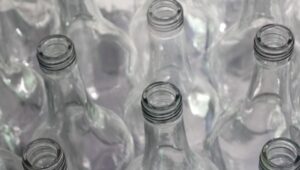That our collective relationship with plastic is unhealthy has been well documented. It is a relationship we take for granted and struggle to move on from despite its often harmful nature.
Table of Contents
The study on the link between plastic and energy
Findings published by the global Break Free From Plastic movement and the nongovernmental Center for International Environmental Law (CIEL) show the dynamics at play and how using less plastic would leave more energy to heat homes.
In their study “Winter is coming: plastic has to go” (Winter is coming: plastic has to go), CIEL and Break Free From Plastic, which counts more than 1,900 NGOs among its members, say that reducing single-use plastics and packaging is a concrete step that institutions could take to contribute to the overall effort to reduce fossil fuel consumption. According to the authors, it is time for the EU to “tackle the petro-elephant in the room: plastics.”
The link between gas, oil and plastics
Derived from fossil fuels, produced in energy-intensive processes and dumped, incinerated or recycled after use, plastics go hand in hand with emissions at every stage of their life.
Yet their production in Europe increased from 0.35 to 55 million tons between 1950 and 2020, and plastics are the EU petrochemical industry’s largest market.
According to the report, in 2020 nearly 15 percent of the EU’s total gas consumption and 14 percent of oil was used to produce petrochemicals. Most of it went to the production of plastics.
The results note, for example, that as much gas was used to produce plastics as was consumed by the Netherlands overall. Similarly, the countries that consume the most oil and gas to produce plastics-Belgium, Germany, Spain, France, Italy, the Netherlands and Poland-also account for 77 percent of all plastic packaging waste in the EU.
Introducing plastics into energy programs
Against this backdrop, and in light of the race for gas supplies outside Russia, it is a serious oversight for the study’s authors not to include the plastics sector in the EU’s Save Gas for a Safe Winter proposal aimed at securing heat and electricity across the continent in the coming months.
While households and small businesses face skyrocketing energy bills, the petrochemical industry is wasting resources, already scarce to produce unneeded single-use plastics, fueling the EU’s energy crisis, Break Free from Plastic argues.
Eliminating single-use plastics has several upsides
Scholars say that telling people to waste less energy while continuing to promote the petrochemical and plastics industries, wasting vast amounts of oil and gas, reveals a serious disconnect between expectations on individuals and industry.
But they also point out how addressing the issue of single-use plastics at this juncture offers a real opportunity to address three crises simultaneously: the plastics crisis, the climate crisis, and the energy crisis.
The report makes a number of recommendations in this regard. Among them are that they impose a decreasing limit on total packaging allowed to enter EU markets, a limit on the volume of plastic produced globally, and a halt to the construction of new fossil fuel infrastructure, including petrochemical plants.
The authors also call for ambitious and binding prevention and reuse targets of 50 percent of plastics by 2030 and 80 percent by 2040, and a ban on unnecessary packaging such as single-serving sachets and fruit and vegetable packaging.
Plastic freeze in Europe?
For activists and scholars, it is time to slow down the plastics industry in Europe. In other words, they would like to see an immediate and complete shutdown of virgin plastic production.
They also advocate a thorough Europe-wide analysis based on the report’s findings, which should include expanding research, questioning the petrochemical industry and listing what kind of products they are producing to see if they are essential or not.
Although Europe has made some strides on plastics, including its 2018 strategy, subsequent ban on some single-use items, and current role in working toward an internationally binding agreement to end plastic pollution, the report notes that the Union has not yet taken steps to directly stop the production of new plastics.
Reducing plastic production versus high energy bills
The scholars hope that in addition to highlighting the correlations between the plastic, climate and energy crises, the new research will initiate a debate on virgin plastic production and the need to further reduce single-use packaging in Europe.
They are optimistic that this winter’s outlook means the results will resonate with both policymakers and the general public.
Scholars believe that it is easier for a politician to implement measures that address single-use plastics than to implement other measures that act on items such as heating systems in people’s homes or increase energy bills.
Read also: Lego bucking the trend: goodbye to recycled plastic












